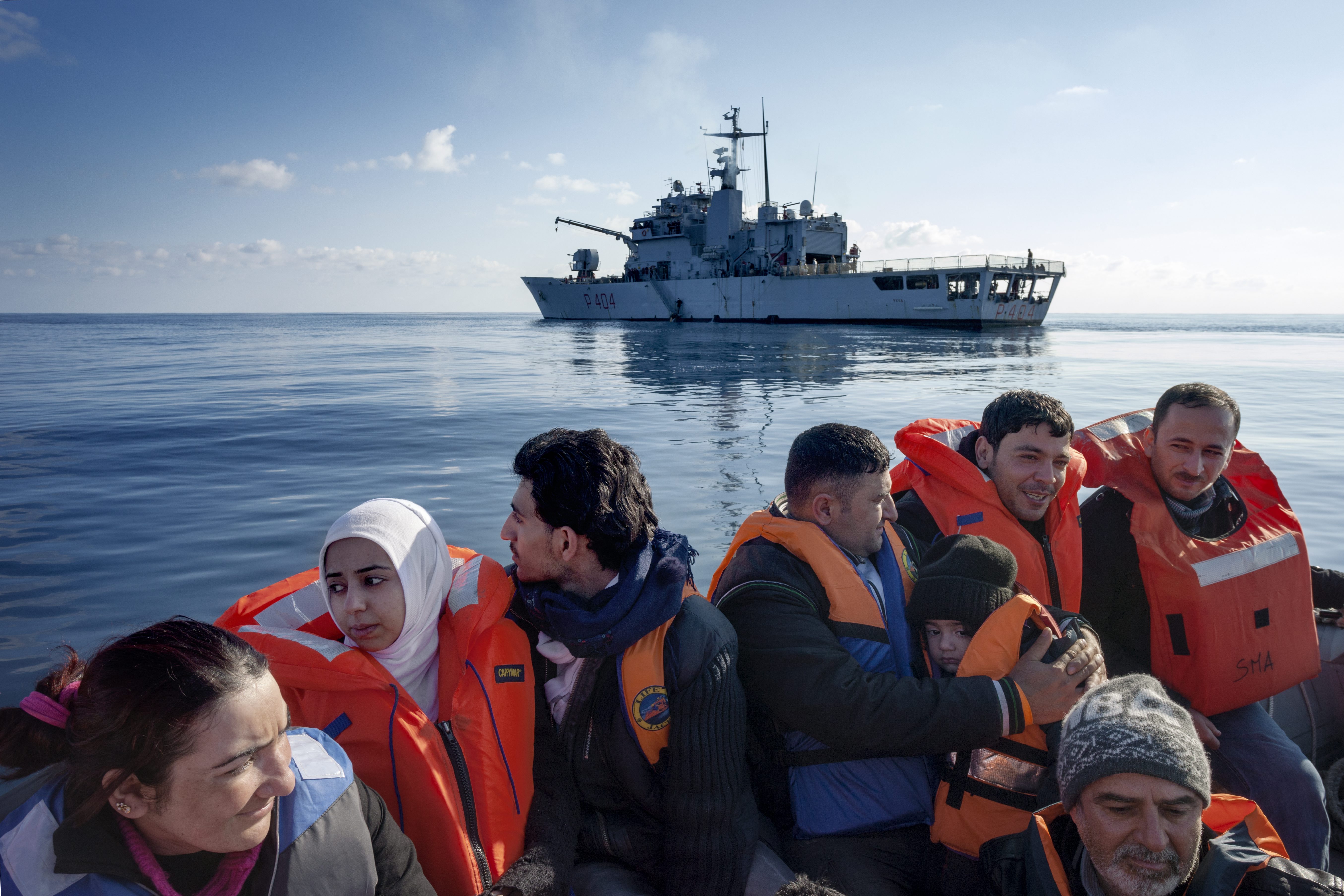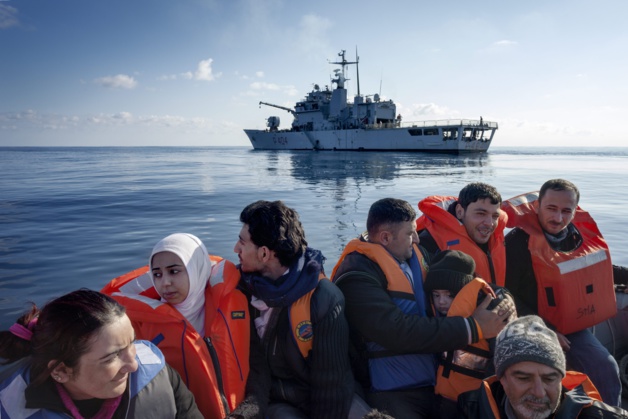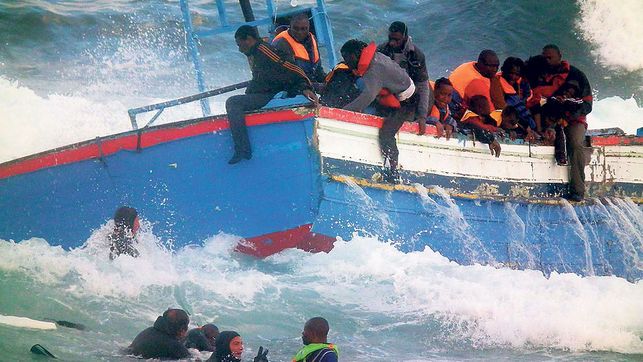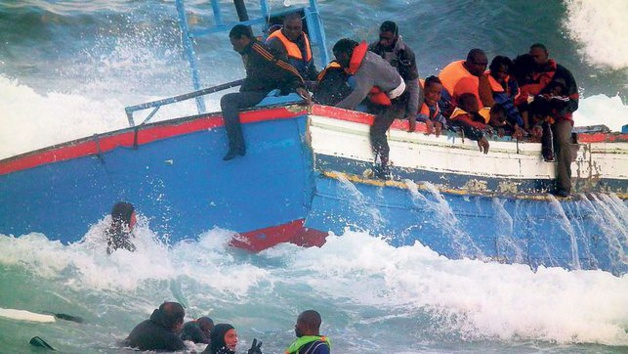The Italian government created Mare Nostrum in October 2013 when a ship full of migrants cap-sized near Lampedusa Island, causing the death of nearly 400 people. The aim of the operation, founded a few days later, is to watch the Mediterranean between Tunisia’s eastern coast and Ita-ly’s southern coast. Ships cruise over the sea at any time; helicopters and even a drone were called up in order to prevent another tragedy.
Until the end of the mission in October 2014, the Italian marine force saved more than 150,000 people. It failed to prevent 2,000 to 3,000 migrants from drowning or disappearing in the Medi-terranean corridor. Italy asked the European Union to contribute to the high costs of this opera-tion but its request was rejected. The only country which sent help was Slovenia. The others nations considered Mare Nostrum as an invitation to illegal immigration and did not want to sup-port it.
Eventually, a year after the Mare Nostrum creation, Europe took on the operation. Under the name Triton and in cooperation with Frontex, the European Agency for the Management of Op-erational Cooperation at the External Borders of the Member States of the European Union, twenty countries placed at the disposal of the operation men and equipment. Several countries promised more help to the compulsory commitment. Frontex coordinates Triton, but the com-mandment remains in the hands of Italy. What has changed, other than the name?
The budget is cut, the staff lessens
The most drastic change is surely financial: compared to the nine million euros per month mobi-lized by Italy for Mare Nostrum, the amount of three million euros allowed to Triton seems quite tight. For this reason, the NGOs are raising the alarm bell. Amnesty International is one of the organisations which welcomed Mare Nostrum, but criticized the shortcoming of the successor: the staff was reduced to its minimum and only a third of the ships are available. According to Izabella Cooper, Frontex’s representative, the goal is not to take the place of Italy but to support it. Given the figures, this support corresponds to a cut.
Another difference between the two operations is their playing field whereas the humanitarian goal brought Mare Nostrum’s ships to the costs of Libya, the Triton team is limited to the bor-ders within the Schengen area in other words to only a few kilometres from the Italian coast. Evenso, Izabella Cooper confirms, “in case of research or rescue operations, they will leave no-body at sea.”
From rescue to surveillance
Given the logistic and legal impositions, the question regards whether the transition from Mare Nostrum to Triton does not also imply a transition from rescue to surveillance. The protection of human lives is side-lined, behind Europe’s protection against the growing number of immigrants. Without thinking of the consequences, they stepped forward: Europe is blind regarding the fact that laws cannot stop migration.
In the politic discussion, European countries talk about the impossibility to welcome migrants: “Switzerland cannot hold the weight of the world’s misery on its own”, writes Pascal Décaillet from the Tribune de Genève on the fact that his country has to welcome 100,000 Syrian refugees. He seems to forget that Lebanon has one million Syrian refugees, corresponding to a quarter of the population. The journalist’s rejection is just an example of the central problems in the immi-gration debate in Europe: the belief to put an end to the problem by refusing immigrants. How-ever, just like his colleague from the Tribune, Pierre Jeni noticed, “Nothing will ever prevent someone who has no other choice to leave his country.” In other words, as long as there are countries in war, famine or tyranny situations, there will be migration. If Europe keeps on refus-ing immigrants, it persists in refusing reality: it is a waste of time to believe we can stop immi-gration once and for all.
New ways for legal migration
We waste energy on endless discussions on immigrants’ distributions in the European countries. This energy invested in fighting immigration would be better invested in fighting against the smugglers. They earn gigantic sums of money thanks to the EU protective laws, but new diplo-matic representations can counter their business. Thus, entry visas are given directly in the coun-try of origin. The following mission is a regular distribution of migrants in European countries, in respect of the wishes expressed by the individuals and putting an end to the constraint to seek asylum in the first host country.
The High Commissioner for Refugees has suggested searching for new ways for legal migration. We can begin by accepting it as a reality of our times.































